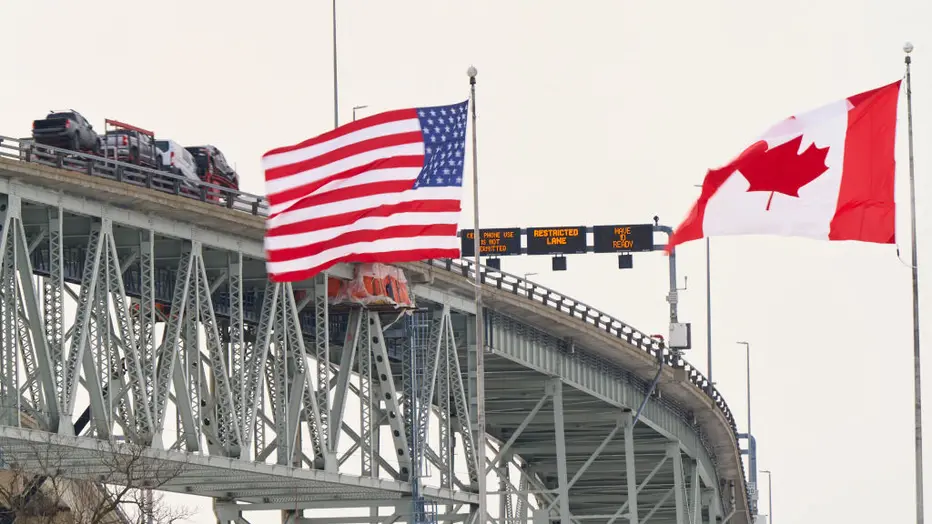Federal High Court Sides with Dangote, Dismisses FCCPC’s Joinder Application
In a major legal development, the Federal High Court in Abuja has dismissed an attempt by the Federal Competition and Consumer Protection Commission (FCCPC) to join the ongoing ₦100 billion import license lawsuit involving Dangote Petroleum Refinery and Petrochemicals FZE.
Justice Inyang Ekwo, who presided over the case, ruled against the FCCPC’s request, stating that the Commission failed to prove its relevance in the matter. The court’s decision clears a significant hurdle for Dangote Refinery, which is seeking to nullify import licenses granted to other Nigerian oil companies.

The ₦100 Billion Lawsuit: What’s It About?
The lawsuit, filed by Dangote Refinery (case number: FHC/ABJ/CS/1324/2024), challenges the Nigerian Midstream and Downstream Petroleum Regulatory Authority (NMDPRA) for issuing import licenses to certain oil companies despite the availability of locally refined petroleum.
The companies affected by this case include:
✔️ Nigerian National Petroleum Company Limited (NNPCL)
✔️ Matrix Petroleum Services Limited
✔️ A.A. Rano Limited
✔️ Four other oil firms
According to Dangote Refinery, the importation of refined petroleum should only occur when there is a shortage in local supply, as per Section 317(8) and (9) of the Petroleum Industry Act (PIA). However, the company argues that despite meeting Nigeria’s daily fuel consumption demand, the NMDPRA continued to issue import licenses, allowing companies to bring in foreign refined products, which Dangote claims undermines local production.
FCCPC’s Attempt to Join the Case: A Push for Fair Competition?
The FCCPC, Nigeria’s regulatory body overseeing fair competition and consumer protection, attempted to join the lawsuit, arguing that preventing oil companies from importing fuel could create a monopoly in favor of Dangote Refinery.
The FCCPC legal team, led by Barrister Olarenwaju Osinaike, contended that:
✅ The case is directly linked to anti-competition concerns in the petroleum industry.
✅ Nigeria operates a free-market economy, meaning all entities should have fair access to business opportunities.
✅ The FCCPC has a mandate to prevent monopolistic practices, deceptive business strategies, and unfair trade agreements.
However, Dangote Refinery strongly opposed this motion, arguing that the lawsuit was not about monopolization but rather about ensuring that import licenses align with Nigeria’s petroleum laws.
Court’s Verdict: FCCPC’s Request Dismissed
After reviewing both arguments, Justice Inyang Ekwo ruled that the FCCPC had no direct relevance in the case and dismissed the application.
Key Points from the Ruling:
🔹 The court acknowledged that while necessary parties can join legal proceedings, they must prove their relevance to the matter.
🔹 The FCCPC’s claims of anti-competition concerns were deemed unsubstantiated in the context of this lawsuit.
🔹 Justice Ekwo stated that the case could be resolved without FCCPC’s involvement, making their application “unmeritorious.”
🔹 The matter has now been adjourned to May 6, 2025, for Dangote Refinery to present its amended claims.
Dangote’s Position: No Monopoly, Just Fair Regulation
In response to the case, Dangote Refinery defended its stance, stating that:
✅ The lawsuit aims to promote local petroleum refining and reduce reliance on imports.
✅ The Petroleum Industry Act (PIA) does not grant the FCCPC the authority to regulate import licenses.
✅ If the FCCPC has concerns about Nigeria’s petroleum regulations, it should advocate for legislative changes instead of interfering in ongoing legal disputes.
Dangote Refinery also pointed out that the NMDPRA’s decision to grant import licenses contradicts national policies that prioritize local refining over foreign imports.
Read also: Why Are Nigerian Retailers Still Importing Fuel Despite Dangote Refinery? The Inside Scoop
What You Should Know
✔️ The court had previously dismissed a similar objection by NNPCL against Dangote Refinery, declaring it “incompetent.”
✔️ Aliko Dangote has been in negotiations to sell a stake in his multibillion-dollar refinery to NNPCL amid ongoing disputes with regulators.
✔️ Dangote has criticized other importers for allegedly bringing substandard petroleum products into Nigeria.
✔️ The Federal Government recently allowed private marketers to buy fuel directly from Dangote Refinery, following NNPCL’s withdrawal as an intermediary.
What’s Next?
With the FCCPC out of the case, the lawsuit will proceed with Dangote Refinery presenting its updated claims in May 2025. The final ruling could have major implications for Nigeria’s petroleum sector, potentially reshaping:
➡️ Importation policies for refined petroleum products.
➡️ Market competition among fuel importers and refiners.
➡️ Dangote Refinery’s role in Nigeria’s energy industry.
📢 Stay tuned for more updates as this legal battle unfolds!















Got a Questions?
Find us on Socials or Contact us and we’ll get back to you as soon as possible.